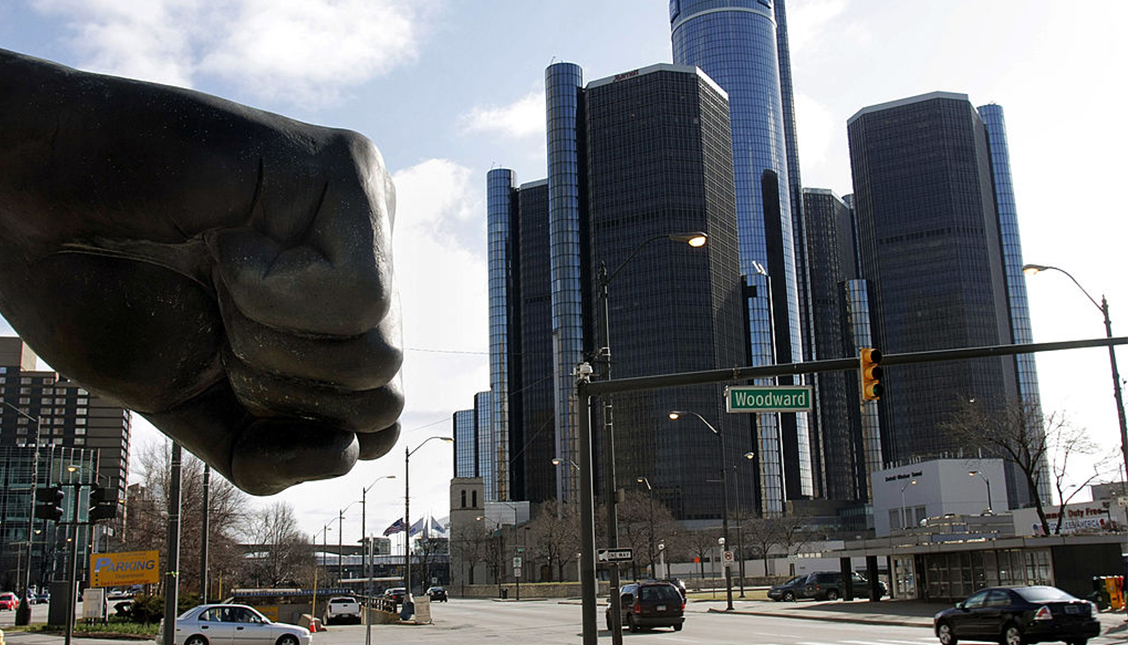
Environmental racism in Detroit
Being born in one neighborhood or another can change your life. Or rather, shorten it. Especially if you're Hispanic or African-American.
Afro-Cuban activist Vince Martin thought as a child that the sky was orange. He grew up in Detroit's 48217 district, the most polluted place in Michigan, where 71 percent of the population is black, due in part to the former segregationist housing policies of a city where "white flight" was common, says The Guardian.
His childhood and youth memories are marked by so-called "environmental racism," which exposes the city's poorer families, especially black and Hispanic, to numerous, even deadly, diseases resulting from air pollution, lead poisoning and water cuts.
When his family moved into the working-class Boyton neighborhood in 1960, the Marathon oil refinery had "one or two oil tankers"— now it is a 250-acre tank farm that has received more than a dozen violation warnings from the Michigan Department of Environment for exceeding pollution emission limits.
His younger brother, David, contracted asthma and juvenile diabetes from the pollution and ended up dying at age 45 from what Vince calls "toxic poisoning". And this was not an isolated case: At his 30-year high school reunion, he felt "that there were more of his class dead than alive."
"People don't realize that the average life expectancy of someone living in Detroit and someone living in the suburbs is a difference of 10 or 15 years," says Michigan Environmental Justice Coalition coordinator Michelle Martinez. She adds that the city is a microcosm of the national and global climate change crisis.
More than three dozen facilities that generate pollution are located in the Tri-Cities, which include not only 48217 ZIP, which has experienced many issues with pollution, but also the neighborhoods of River Rouge and Ecorse—although the environmental problem extends throughout the city.
According to the Metro Times, residents of this black triangle suffer extremely high rates of asthma, cancer, brain damage, heart disease, respiratory problems, and birth defects, and even miscarriages, all linked to pollution.
Mostly because of emissions of chemicals such as benzene and hydrogen cyanide and chromium. Just to give an idea of how lethal it is to live breathing this air, hydrogen cyanide from oil processing was used by the Nazis to gas prisoners in the concentration camps.
Detroit is one of the cities most affected by extreme poverty, depopulation and the agony of the manufacturing industry, which caused a mass exodus except for those who have nowhere else to go.
However, beyond its status as a toxic and impoverished place, environmental activists have been claiming for over 40 years that breathing clean air should not be the privilege of the rich alone.
"People don't realize that the average life expectancy of someone living in Detroit and someone living in the suburbs is a difference of 10 or 15 years," Michelle Martinez.
Among them is Donele Wilkins, a pioneer in the fight against environmental inequality in Detroit who for decades opposed the construction of an incinerator in the city, whose emissions from burning garbage were linked, according to Wilkins, to an increase in cancers and respiratory problems, especially in children. And she was not wrong.
RELATED CONTENT
An NAACP report showed that over 2,000 Black children in Detroit have asthma attacks due to pollution.
Since the city began cutting off water to residents whose bills were more than 60 days late in 2014, more than 112,000 homes have no running water, reports The Guardian.
"We're talking about people bathing babies in bottled water," Gunn-Wright, co-author of the Green New Deal, told an HBCU climate change conference in New Orleans this November. "People who collect rainwater to drink and feed their children, to cook their meals.
Add to this the fact that the water is contaminated with lead and that the factories that emit it are located very close to poor neighborhoods in the city, and what we have are cases of children with high levels of lead in their blood and possible learning and growth problems.
So much so that 500 purification stations had to be installed in public schools so that children could drink water that was free of lead and other contaminants.
"The fact is that we live in the shadow of countless abandoned industrial areas and lead smelters... that used to crush and incinerate automotive batteries containing lead," says Wilkins.
Detroit may be the beginning of a new kind of inequality in the United States, and we are witnessing an internal exodus of wealthy citizens moving to cities like Buffalo, New York, already considered the city of climate refugees, while poor minorities continue to live in the country's most polluted areas.











LEAVE A COMMENT:
Join the discussion! Leave a comment.